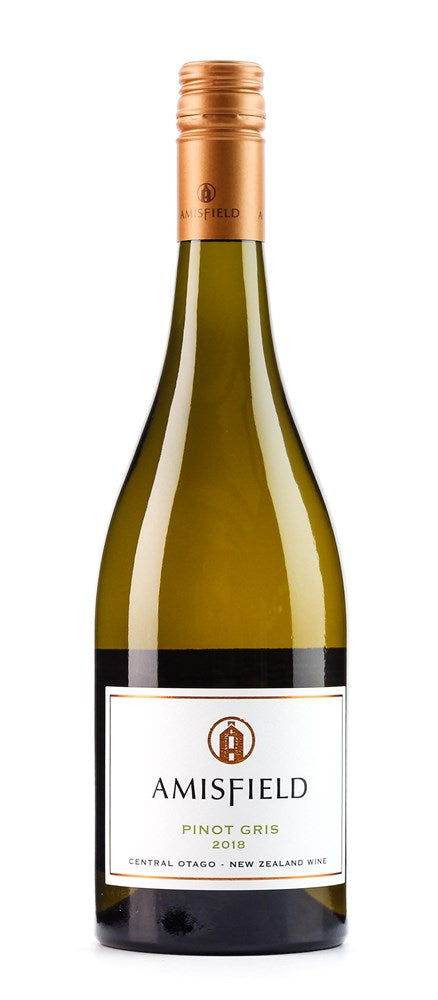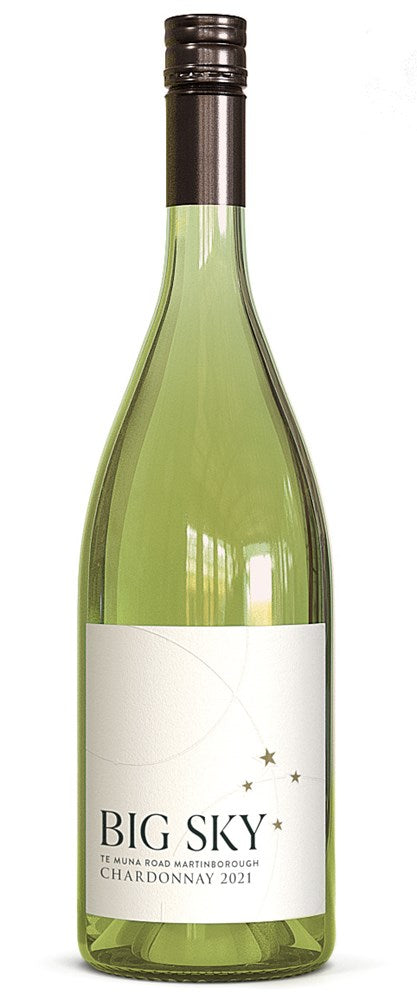1191 products
1191 products
Sort by:
New Zealand Wine
Section 94 is one of New Zealand great white wines, made from a small portion of vineyard land that was named Section 94 on the country's original lands and survey map. It's the brainchild of the highly experienced viticulturist-winemaking duo, Ivan Sutherland (one time Olympic medal winning rower) and James Healy, the grapes are 100% barrel fermented in new French oak followed by aging in oak. Complex, great and long lived maverick wine.
Layers of depth with nutty aromas and full bodied with dry flavours. Drinks well on release and can also age, as this example shows. It is 100% Sauvignon Blanc but is not labelled with the varietal as Sutherland and Healy want to highlight what's possible from the land first and foremost.
A unique parcel within Rippon, Emma’s Block faces eastward on the lakefront where ancient clay reefs run laterally through fine schist gravels. Emma’s Block is named after the great-great-great grandmother of the current generation of the Mills family, through whom the name entered into the family.
Cellaring is recommended. This wine will age gracefully for 10+ years.
Pinot Noir is king and Chardonnay is queen of the Akarua winery in Bannockburn where 78% of the wines made are Pinot and full of appealing plump red plum and ripe cherry flavours, leading into a beautifully structured, full bodied wine with a long, silky finish.
The Maori word Akarua translates to two vines and is the name chosen by Sir Clifford Skeggs, who planted Pinot Noir and Chardonnay on his terraced vineyard in Bannockburn. Last year, he sold the vineyard and winery to the Edmond de Rothschild Heritage group which is continuing the brand and its great wines.
Amisfield Winery is based in Pisa while its beautiful cellar door shop and restaurant overlook Lake Hayes, just outside of Queenstown.
This winery makes a more diverse range of whites than most in Central Otago and the Pinot Gris is a light bodied, refreshing expression of this white grape from a cool climate. Spice, fresh fruit and a long finish all make this an extremely good quality Pinot Gris.
The vineyards selected for this wine are Huia Rapaura vineyard and Rose family Kennedy vineyard.
The grapes were hand-harvested, whole bunch pressed. Juice was racked off to barrels for fermentation where a warm, fast ferment was encouraged. Base wine underwent full malolactic fermentation. Aged on gross lees in neutral French oak for 14 months. Wine is put on tirage where yeast and sugar is added before bottling. Second fermentation occurred in bottle and the wine aged on lees for a further 20 months. Hand riddled over 5 weeks and disgorged on 6th December 2021.
Senses
Sight: cured salmon pink.
Smell: Strawberries, cherries and baked bread.
Taste: Fresh, wild strawberries and strawberry shortcake with a crisp finish.
Food Matches: Goats cheese platters. Saffron risotto. Proper Crisps with Marlborogh Seasalt
Homage is Trinity Hill?s top red and was first made in 2002 from 100% Syrah grapes grown on the Gimblett Gravels in Hawke?s Bay. It was inspired when its founder, winemaker John Hancock, visited Gerard Jaboulet in Tain l?Hermitage in the northern Rhone Valley, France and met Gerard Jaboulet and his father Louis, who produced the great wine, Jaboulet Hermitage La Chapelle ? one of the great reds of the first half of the 20th Century. It?s still one of the northern Rhone?s great reds but is not always considered the absolute pinnacle these days, despite its illustrious history and its evocative name ? after a small stone chapel supposedly built as a retreat for a 13th century knight loved the hill of Hermitage above the Rh?ne.
Back in New Zealand, Hancock was so inspired that he returned to the Rhone to work the 1996 harvest at Jaboulet, an experience which cemented his own passion for northern Rhone Syrah styles. This was further cemented when Gerard Jaboulet sent him three clones of Syrah and one of Viognier as a gift from the Hermitage appellation. Gerard passed away in 1997 at the age of 55 but Hancock had those vine cuttings quarantined and propagated so that he was able to plant them in 2002, alongside Trinity Hill Winery?s first Syrah vines, which were planted in 1995 with cuttings from the neighbouring Stonecroft vineyard.
Long story short, the first small production Syrah was produced at Trinity Hill in 1997 and has since grown so that the winery produces three different Syrahs, of which Homage is the king.
This is an elegant, intense and concentrated Syrah from Dry River's Lovat vineyard. The nose offers ripe berry and dark plum with a hint of floral and black pepper aromatics. Medium bodied, with a focused palate full of ripe juicy fruit notes, licorice flavours and fine grained tannins. This wine will continue to improve with age.
Elephant Hill Syrah is made from grapes grown on two vineyards, at the winery's home block at Te Awanga and on the Gimblett Gravels, inland from the coast. It is a co ferment of 99% Syrah with 1% Viognier; a classic northern Rhone winemaking method, which provides wines with pronounced dark fruit flavours, fleshy texture and spicy notes.
A big red with a big following thanks to its dense dark and impressive ripe black plummy flavours intermingled with spice in a deliciously full bodied, complex red wine from Waiheke Island's biggest wine producer.
The grapes in this wine come from six vineyards on the island. They are called Asylum, Big North, Garden Cove, Mad Mans, Niko Face and North 3; all small sites planted on extremely steep hillsides on a remote and beautiful corner of Waiheke Island. Each little vineyard was originally planted as an experiment to see how well grapes would fare here. The results speak for themselves; Man O' War Dreadnought Syrah is a commanding and powerful red from one of the warmest climates in New Zealand. It was fermented in French oak, 32% new and 68% seasoned and is named after the first in a line of early 20th Century battleships which was named Dreadnought.
Fantastic value for money, dry and flinty with brief lees maturation adding depth, which balances the fresh acidity in this zesty little wine. It was fined once and lightly filtered before bottling.
Clos Henri began 22 years ago in Marlborough when the French Bourgeois family expanded their winemaking from the heart of Sancerre in the tiny village of Chavignol to Blenheim, in 2001. Now that their vines are 22 years of age , the family feels that they are only now starting to reflect and express the taste of the land. This family retains their land and winemaking in Chavignol where they have made wine for 11 generations.
Lively new Sauvignon Blanc from Marlborough with smoothness and interesting textural mouthfeel from a portion (1%) of barrel fermentation and 8% wild yeast ferment both adding complexity to the vibrant fruity appeal.
Tropical aromas and creamy notes add complexity to this wine, which drinks beautifully now with fresh fish and can age for three to five years.
Winemaker Simon Waghorn brings grapes together from three sub regions of Marlborough to make this dry, full bodied style of Sauvignon Blanc. Vineyards in the Wairau Valley, Awatere Valley and Kekerengu Coast (the most southern of Marlborough's vineyards) all combine to make this succulent dry wine with its ripe flavours of tropical fruit balanced by green notes.
All grapes are machine harvested at night or in the cool parts of the day to preserve the purity and intensity of flavours. WInemaker Simon Waghorn blends to suit what he thinks is Astrolabe’s style, which reflects what he has learnt as a winemaker and drinker over the years. This means he aims to create a Sauvignon that tastes dry, expressive and elegantly balanced with flavours of passionfruit, blackcurrant leaf and gooseberry.
The story of Astrolabe
Diversity, history and family ownership are among the reasons to try the outstanding range of wines from Astrolabe, which was founded in 1996 in Marlborough by winemaker Simon Waghorn and his partner in life and wine, Jane.
Simon has forged a reputation for being one of New Zealand's most respected producers of aromatic white wines after winning an almost embarrassingly long string of awards for his Sauvignon Blancs. He has also forged a name for adventurously diverse winemaking - he produces dry flinty whites from the most southern vineyard in Marlborough at Kekerengu on the coast about an hour's drive south of Blenheim. He is the only winemaker to produce wines from here.
He is also one of the few in this country to make Albarino, Chenin Blanc and a consistently outstanding range of wines from the organically certified hillside sloping site that is the Wrekin Vineyard in Marlborough.
The winery remains family owned and is now run by two generations, including Simon and Jane as well as their adult daughters.















